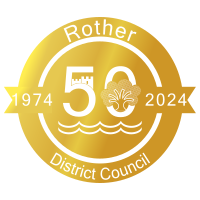
Spring is here, the daffodils are out and Easter is just around the corner, bringing with it a feeling of optimism and the celebration of new life. It has inspired us to create our latest blog, featuring top tips on keeping your Easter celebrations planet friendly so we can continue to celebrate this special time of year for generations to come.
If you’re planning a traditional Easter roast, consider where your meat has come from and how it’s been produced. The yearly climate impact of farming meat is roughly the same as that of the fuel consumed by every car, van, lorry and aeroplane combined so eating less meat is one of the best ways to help the planet. Reducing the amount of meat on our plates is a great first step (and can be a health boost too if you replace it with more veggies!), but even better is to switch to sustainably produced, local meat – and vegetables. These will often cost a little more than those we find in supermarkets, but if we “buy less, buy better” we not only slash the carbon footprint of our food, but are left with less food waste (reducing those food-related emissions even further) plus we’ve supported our local food producers and outlets, truly egg-celent!
As with any event you may be celebrating, a top eco-conscious tip is to avoid single-use items wherever possible (bonnets, baskets, cutlery, games and decorations etc.), especially those made from plastic. Whilst most plastics are recyclable, they are made from fossil fuels so their production contributes to climate change, and if they do find their way into the environment it can have devastating consequences to wildlife. First and foremost, see if you can re-use or upcycle things you already have, borrow from friends and family or find the things you need second-hand. If not, opt for reusable party items, made from sustainable materials such as wood, cardboard or paper. This ensures minimal impact on the environment once they can no longer be resurrected year on year and make it into your waste bin.
And of course, Easter can’t pass without talk of chocolate! Thankfully, lots of Easter eggs and treats now come plastic-free too so look out for those with only cardboard and foil packaging, which is fully and easily recyclable in your curbside recycling collection. The soft plastic, foil-looking wrappers often used for individually wrapped confectionary (and crisp packets) are not currently collected curbside, however many supermarkets have recycling collection points for these.
Although a couple of years old, this article from the Energy Saving Trust still provides a good overview of the various reasons why sustainable chocolate consumption here in the UK would have climate implications worldwide: Chocolate: the sustainability cost – Energy Saving Trust. As a minimum, they recommend we all look out for chocolate that is Rainforest Alliance and / or Fairtrade certified.

